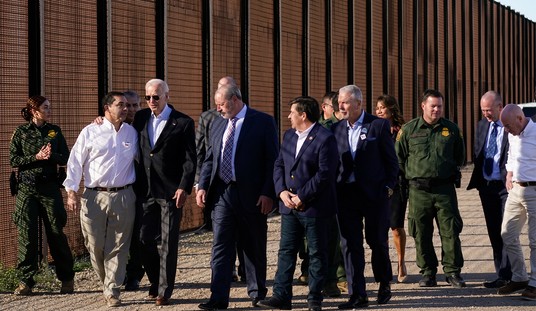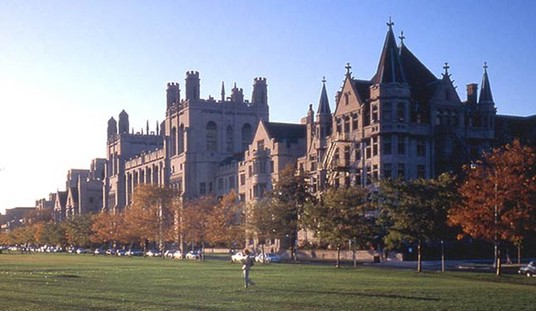At least when Barack Obama won the Nobel Peace Prize for replacing that evil drone-flying, war-waging George Bush, he’d been on the job longer than two weeks. Not much longer than two weeks, I grant you, but he’d had at least some time to measure for drapery and get about halfway through his planning to escalate the war in Afghanistan. At the time, critics charged that the Nobel committee gave the award to Obama for just showing up, but this time it’s almost literally true:
The Organization for the Prohibition of Chemical Weapons, the Hague-based agency responsible for destroying Syria’s chemical weapons, has won the Nobel Peace Prize, the Norwegian Nobel Committee said Friday in Oslo.
The award caught much of the world by surprise, as did last year’s prize, which went to the European Union. But the removal of chemical weapons from Syria has been viewed as an important step in bringing an end to a two-and-a-half year war that has killed an estimated 100,000 people.
And that might be true … when Syria actually rids itself of chemical weapons. At the moment, though, the OPCW just arrived in Syria at the beginning of this month to take inventory, not to disable weapons, and there’s no real indication that Syria will comply in this effort. Under the terms of the UN Security Council resolution, there are no consequences for non-compliance other than a strongly-worded letter and the possibility that the UN Security Council might have a loud meeting about it, which I grant might be frightening for diplomats who get the vapors too easily.
The committee seemed to understand that this would produce plenty of head-scratching, including at the OPCW itself:
At the same time, the committee posted to Twitter that the prize was not awarded because of the work OPCW has just started in Syria, “but because of its longstanding work.”…
The agency has long been accustomed to little attention, and its role in Syria has been a big adjustment. “People are still getting their heads around being in the global limelight,” Michael Luhan, the OPCW’s spokesman, told The Washington Post in a recent interview. “If this is not an example of building a plane and flying it at the same time, I don’t know what is.”
Their role in Syria has been a big adjustment because they’ve never been involved in disarming a non-signatory to the Chemical Weapons Convention until a week and a half ago. The OPCW conducts inspections under the CWC to ensure compliance, but they don’t do so unless nations are signatories to the CWC or without their agreement. While the OPCW claims the right to conduct fact-finding missions when chemical weapons use has been alleged, they’ve apparently never conducted one, at least not according to Wikipedia (an admittedly weak resource).
There’s nothing wrong with the OPCW, but the decision to award it a Nobel Peace Prize seems premature, to say the least. And it’s even more puzzling when one considers the popular choice for the award, at least among the media. Malala Yousafzai tried to defy the Taliban in Pakistan by keeping schools open for girls and young women, and took a bullet to the head for it. She has since become a global spokesperson for womens’ rights in Islamic countries, a dangerous and difficult position which the teenager has handled with grace and dignity. Wouldn’t recognition of Yousafzai’s efforts by the Nobel committee have focused more on actual accomplishment than simply giving an attendance award to the OPCW?








Join the conversation as a VIP Member